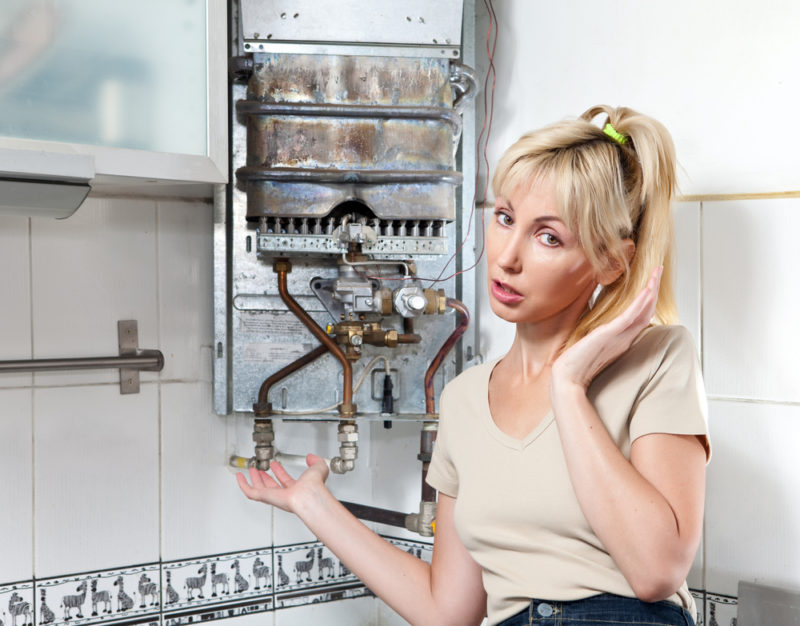Required Procedures for Homeowners Handling Broken Water Heaters
Required Procedures for Homeowners Handling Broken Water Heaters
Blog Article
Here down the page you can locate a lot of sound material in regards to How to Avoid a Broken Hot Water Heater.

Whether it lies in the basement or a different space, busted hot water heater can cause stress and anxiety. A typical system holds 80 gallons, so an over night leak will certainly lead to a flooding. This causes major property damages with drenched walls and floorings. Besides, having no warm water supply is also frustrating. If you are managing these concerns, remember of the following:
Call the Plumber
After doing the first 2 safety actions, you must call your plumber to come right away to take care of a fractured water heater. There are normally indicators that your aging water heater has sediment accumulation in the inside.
Instead, as quickly as you spot these signs, have a professional come to check your water heating unit container. Normally, water heating units have a life-span of regarding 8 to 12 years.
Cut Off the Cold Water Supply
Cut off the storage tanks tap water supply from the source. This goes from your major water line into the tank. When your container remains in good condition, the cold water stops filling when the container is full. Considering that it is dripping, the water will certainly proceed to move. Shut the shutoff located on top of the heating system. Revolve this clockwise to close it off. If you can not locate it or reach it, you have to switch off that major water line outside your home.
Shut Down Power Source
Prior to calling the plumber, shut off a gas water heating unit by transforming the temperature dial. This will certainly prevent electrocution, especially if there is a leakage as water is a conductor. Commonly, the home heating element closes off when the water strikes a particular temperature.
Tidy up Building
After calling the plumber, file damages by taking notes and images so you can claim your homeowner's insurance coverage. Remove any type of standing water to protect against mold as well as mold growth. If you have a completely submersible water pump, make use of that to drain the water.
Keep in mind, if you see any type of issues with your water heater, call the pros today. You can not take this trouble gently due to the fact that a faulty thermostat can raise water temp to an alarmingly high level, resulting in unintentional burns. A damaged heater stress safety valve can likewise trigger an explosion. For ideal outcomes, obtain a yearly check so your device gets examined, cleaned, drained pipes, and replenished, assuring optimum performance.
After doing the initial 2 security actions, you should call your plumber to come right away to fix a fractured water heater. Instead, as quickly as you identify these signs, have an expert come to evaluate your water heater tank. Prior to calling the plumber, closed off a gas water heater by transforming the temperature dial. If you have a completely submersible water pump, make use of that to drain pipes the water. Bear in mind, if you notice any type of problems with your water heating unit, call the pros right away.
MY WATER HEATER BURST – WHAT DO I DO?
WHAT ARE THE SIGNS OF A BROKEN WATER HEATER?
When the water heater ruptures and floods your home, you know you’re in trouble. More often, the unit develops signs of trouble that aren’t as dramatic. These are some of the most common signs that your water heater is about to become a serious homeowner’s headache.
LEAKING
Leaking pipe connections and water pooling under the tank are sure indicators of water heater failure. Leaking is relatively common in tanks that are 6 or more years old.
CORROSION
If you find that you’re having to manually adjust your tank to higher temperatures, corrosion may be an issue. When it affects the valves, it becomes impossible for the hot water tank to produce hot water automatically.
FUNKY WATER
Rusty water coming from hot water taps is often caused by aging pipes in the unit. At the same time, water that is too hot or not hot enough indicates a malfunctioning thermostat or other part.
ODD NOISES
Rumbling, banging or popping sounds are usually signs of sediment buildup in the tank. Have these noises checked immediately to prevent further damage to the tank.
DETERIORATION
Deterioration happens when sediment sits on the bottom of the tank for too long, eventually causing the tank to rust and wear down, causing leaking, corrosion, and a broken water heater.
https://www.servicemasterbyzaba.com/blog/what-to-do-when-water-heater-breaks/

We are very drawn to What Do You Do When Your Water Heater Bursts? and I hope you liked the entire article. Do you know another person who is interested by the subject? Take a moment to promote it. I am grateful for your time. Come back soon.
Professional touch for plumbing woes. Report this page